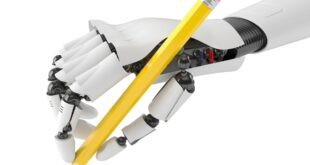
Last week, Voicebot.ai reported that Adam Cheyer, a founding member of the startups that built both Siri and Bixby, left Samsung after a two-year stint at the company. Cheyer himself corroborated the report today, telling VentureBeat that he has no next plans as of yet.
Cheyer’s departure coincides with a minor exodus from the Bixby voice assistant team at Samsung. At least seven people left between January and April including lead conversation designer Robbie Pickard, senior engineer Theo Gravity, and senior director David Oh, according to Voicebot.ai. Perhaps uncoincidentally, Reuters and Bloomberg recently reported that Samsung is considering dropping Bixby from its mobile devices as part of a new revenue-sharing deal with Google.
Samsung told Bloomberg that it remains committed to its own services and ecosystem. Google said in a statement it regularly discusses ways to improve the user experience with partners and that Samsung remains free to create its own digital assistant.
Bixby has long struggled to gain a foothold against competition like Google Assistant, Amazon’s Alexa, and Apple’s Siri. According to a survey conducted last year, only 4% of U.S. adults said they used Bixby on their smartphone, compared with 44% who used Siri and 30% who used Google Assistant. Meanwhile, companies like Amazon Google have cornered the smart speaker market with 26.2% and 20.3% 2019 market share respectively.
Some of the wounds are self-inflicted. Two years after unveiling the Galaxy Home, a Bixby-powered smart speaker, Samsung has yet to bring it to market after repeated delays. A smaller sibling dubbed the Galaxy Home Mini is undergoing beta testing in South Korea and only briefly broke cover at a device demo wall at the 2019 Samsung Developer Conference.
In something of an acknowledgment of Bixby’s second-class status, Samsung quietly replaced Bixby Home — a page on Galaxy phones that shows reminders, news, and weather — with a lookalike dubbed Samsung Daily in its One UI 2.0 Android skin. After years of fighting community efforts to enable remapping of the Bixby button on its handsets, Samsung caved and provided an official means of doing so. And perhaps most telling of all, the Note10 and S20 series lack a dedicated button altogether.
Just because Bixby is ceding the spotlight doesn’t mean it won’t be waiting in the wings, of course. Samsung often points out that the more than 500 million appliances, smart TVs, phones, tablets, and more it sells globally each year are technically “Bixby-ready,” meaning they’re either compatible with Bixby or natively run the assistant. And in November, Samsung announced that Bixby is available on 160 million devices around the world.
Cheyer previously led the Cognitive Assistant that Learns and Organizes (CALO) project at SRI International’s Artificial Intelligence Center, which sought to integrate cutting-edge machine learning techniques into a platform-agnostic cognitive assistant. After Apple acquired Siri in 2010 for $ 200 million, he helped to launch Viv Labs out of stealth in 2016, where he spent years incubating an assistant platform designed to handle complex queries.
Samsung acquired Viv in October 2016 for roughly $ 215 million and soon after tasked Cheyer and colleagues with building their startup’s technology into the company’s Bixby assistant, which rolled out in March 2017 alongside the Samsung Galaxy S8 and S8+. The fruit of their labor — Bixby 2.0 — made its debut in October 2017 at Samsung’s Bixby Developer Conference and formally launched on the Galaxy Note9 in August 2018.



